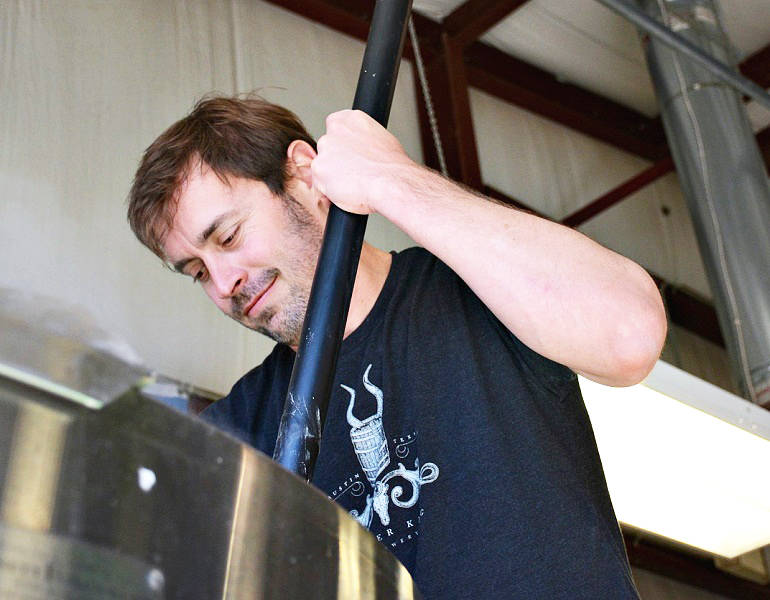Start 14-Day Trial Subscription
*No credit card required

Jeffrey Stuffings of Jester King Brewery
Jester King Brewery's founder and head brewer Jeffrey Stuffings discusses the vibrant craft brewing scene in Austin, Texas as well as his brewery's role therein.
What did you do before joining the craft beer industry?
Prior to joining the craft beer industry I was a lawyer. The job lacked creativity and the culture was fairly oppressive. Craft beer served as a lifeboat out of that world. I started working at Austin Homebrew Supply, which I loved, before starting Jester King a few years later.
What drew you to brewing?
The alchemy of fermentation. Using living microorganisms to create flavor and aroma is an amazing process. The sights, smells, sounds, textures and flavors from fermentation drew me in. The culinary aspect of brewing was also appealing, and I view brewing as an extension of cooking. Finally, the culture of the brewing industry held major appeal; I can't think of a better industry to be in.
How did Jester King get started?
Jester King took three years to get off the ground. In late 2007, I began writing a business plan and working on test batches. By the summer of 2009, I was ready to start fundraising. Around that time, my brother Michael moved to Texas to help me get the brewery off the ground. We raised the money and broke ground in April of 2010, then opened in October of 2010.

Jester King's koelschip allows native yeast and bacteria to thrive during fermentation of the brewery's signature tart beers.
Why does Jester King focus on sours?
We consider ourselves to be an authentic farmhouse brewery, and our philosophy is to make beers with a sense of time and place. A big part of this to us is engaging in mixed-culture fermentation with native yeast and bacteria. We don't explicitly set out to make sour beer, but the bacteria in our mixed culture creates natural acidity, which gives the beer its signature tartness.
It's often hard to keep up with new releases, but Jester King announces one seemingly every week. Why so many different releases from Jester King?
Just as our beer is tied to a place, it's also tied to a time. The reality is that we can only make certain beers at certain times of the year. For instance, the spring and summertime are fruit season, and the wintertime is our spontaneous season. The ambient temperature and ratio of yeast to bacteria in the air also controls when we can make certain beers. Noble King Hoppy Farmhouse Ale, for instance, is a beer that needs to ferment quite hot (upper 80s Fahrenheit) to get the flavor and aroma profile we want. We can't maintain these high fermentation temperatures in the winter. Likewise, we've found that when fermentation temperatures dip down into the 50s and 60s, the yeast is stunted and the bacteria dominate. Therefore, we make beers where we want more acidity in the winter. Various ingredients themselves are only available to us at certain times of the year, whether they be fruits or vegetables. Finally, we like to keep our brewing environment fun and interesting. Making the same beer day in and day out isn't of interest to us.




Comments
Pages